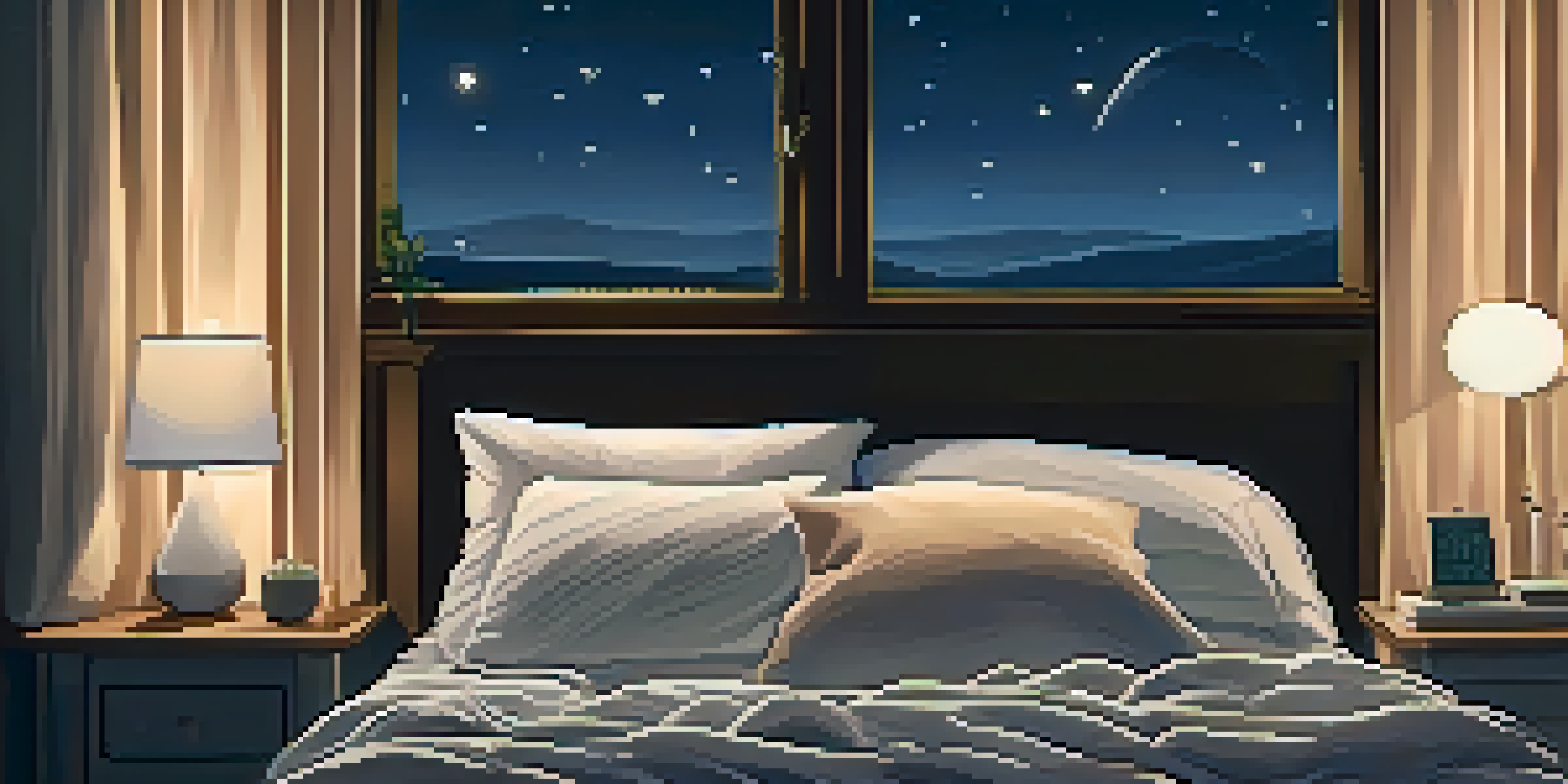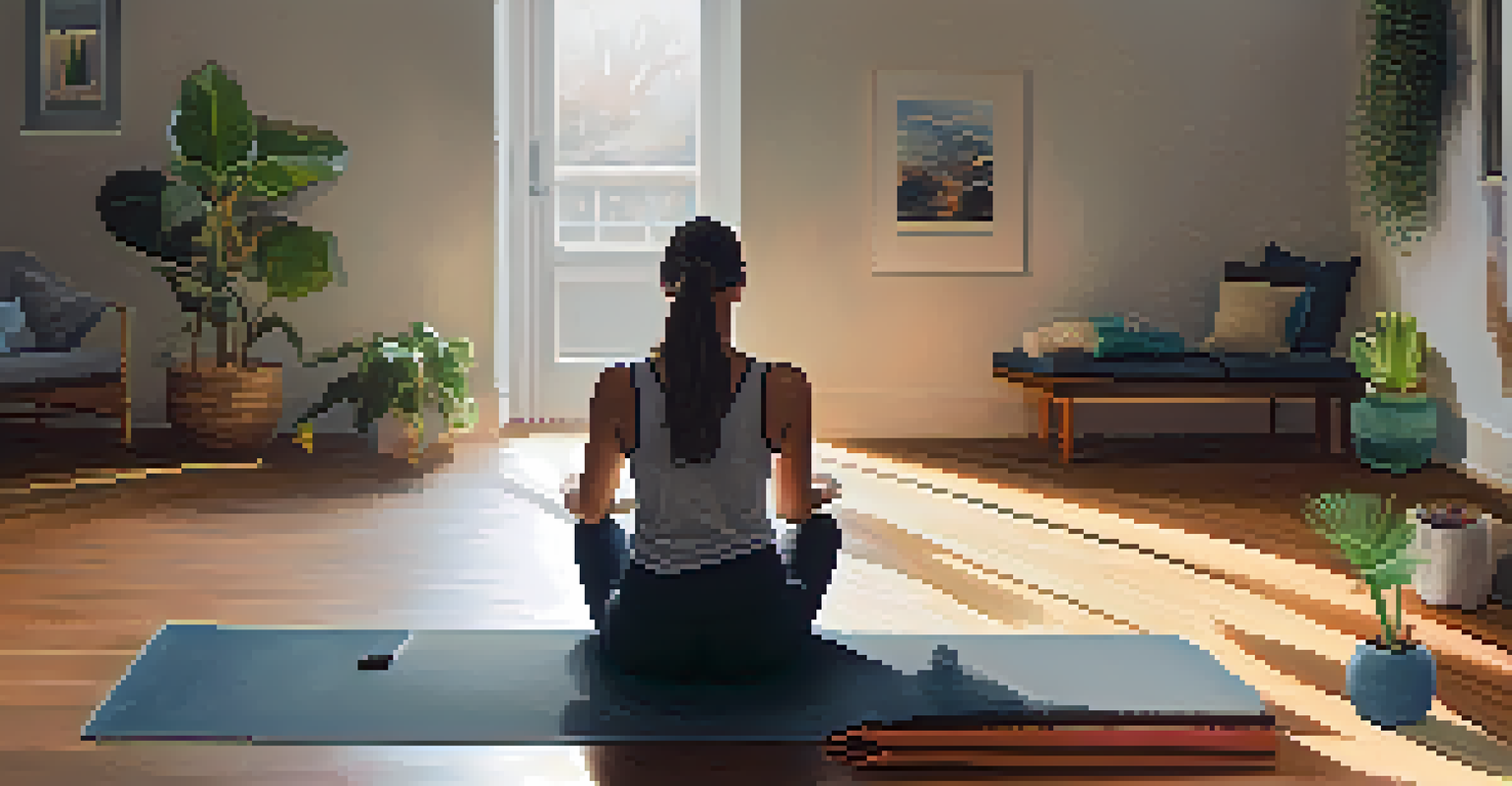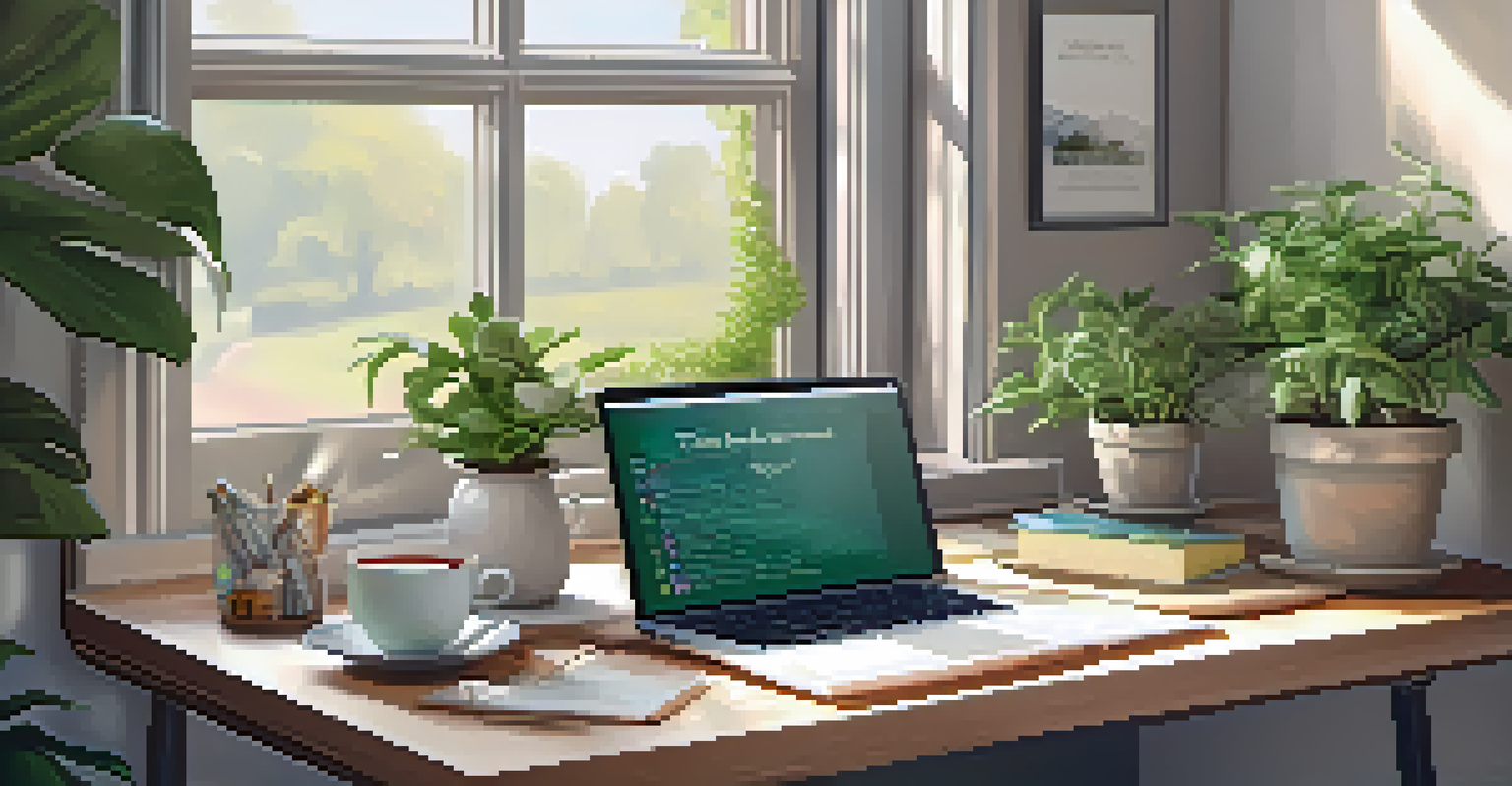Social Media's Effect on Sleep Patterns and Mental Health

Understanding the Link Between Social Media and Sleep
In today's digital age, social media has become a staple in our lives, often extending late into the night. The blue light emitted from screens can interfere with melatonin production, a hormone that regulates sleep. This disruption can lead to difficulty falling asleep or maintaining a restful slumber, leaving many feeling groggy the next day.
The greatest weapon against stress is our ability to choose one thought over another.
Moreover, scrolling through social media feeds can create a sense of urgency or excitement that keeps our minds alert. Engaging with posts, videos, or notifications can stimulate our brain, making it challenging to unwind. As a result, many people find themselves sacrificing precious sleep time for a few more likes or comments.
Understanding this connection is essential for anyone looking to improve their sleep quality. By recognizing the potential negative effects of late-night scrolling, individuals can take proactive steps to create healthier nighttime habits.
The Psychological Toll of Social Comparisons Online
Social media platforms often showcase the highlight reels of people's lives, which can lead to dangerous social comparisons. When users constantly compare their lives to these curated images, it can result in feelings of inadequacy and low self-esteem. This emotional burden can further exacerbate sleep issues, as stress and anxiety may keep individuals awake at night.

For instance, a study found that individuals who spend more time on social media report feeling more anxious and depressed, especially when they perceive themselves as less successful than their peers. This constant comparison can create a vicious cycle where poor mental health negatively impacts sleep, which in turn affects mental health even more.
Social Media Disrupts Sleep Quality
The blue light from screens and engaging content can hinder melatonin production, making it difficult to fall asleep and stay asleep.
By acknowledging these feelings and their origins, individuals can begin to break free from the cycle of comparison. Limiting exposure to triggering content and focusing on personal growth can foster a healthier self-image and improve overall well-being.
How Social Media Can Fuel Anxiety and Depression
Social media can act as a double-edged sword when it comes to mental health. While it can provide support and community, it can also amplify feelings of anxiety and depression. Negative interactions, cyberbullying, or exposure to distressing news can leave users feeling vulnerable and overwhelmed.
Almost everything will work again if you unplug it for a few minutes, including you.
Research indicates that heavy social media use is linked to increased symptoms of anxiety and depression. The constant barrage of information can lead to a feeling of being 'always on,' contributing to a heightened state of alertness that disrupts emotional stability. Consequently, this heightened anxiety can make it hard to switch off at night, leading to further sleep disturbances.
Navigating social media mindfully is crucial in mitigating these effects. Taking breaks from social platforms and curating one's feed to include uplifting content can help foster a more positive online experience and support mental health.
The Role of FOMO in Disrupted Sleep Patterns
Fear of missing out, commonly known as FOMO, is a phenomenon that can significantly impact sleep patterns. Many individuals feel compelled to stay connected to social media, fearing they might miss important updates or events. This constant need to check notifications can lead to late-night scrolling and disrupted sleep.
FOMO often drives users to engage with their devices at inappropriate times, such as right before bed. This behavior not only delays sleep but can also increase anxiety levels, making it even harder to find rest. The cycle continues as poor sleep quality leads to heightened FOMO, creating a stressful loop.
FOMO Impacts Sleep Patterns
Fear of missing out drives late-night social media checking, leading to disrupted sleep and increased anxiety.
To combat FOMO, adopting a digital curfew may be helpful. Setting aside specific times to disconnect from social media can encourage healthier sleep habits and reduce anxiety, allowing individuals to enjoy a more restful night.
Creating Healthy Boundaries with Social Media
Establishing healthy boundaries with social media is essential for promoting better sleep and mental health. This can include setting specific times for checking social accounts and avoiding screens during the hour leading up to bedtime. By creating a sleep-friendly environment, individuals can signal to their brain that it's time to wind down.
In addition to time boundaries, it’s important to curate content. Following accounts that inspire and uplift can foster a more positive mindset, whereas unfollowing negative or triggering content can help reduce anxiety and stress. This mindful approach to social media can create a more enriching experience overall.
Implementing these boundaries requires intentionality, but the benefits can be profound. Improved sleep and mental health can lead to increased productivity and a better quality of life, making it worth the effort.
Mindfulness and Social Media Use
Incorporating mindfulness into social media use can dramatically improve mental well-being and sleep quality. Mindfulness encourages individuals to be present and aware of their feelings and thoughts, allowing them to navigate social media more consciously. This practice can help users recognize when social media negatively affects their mood or sleep.
For example, taking a moment to reflect on how a particular post makes you feel can help in deciding whether to engage with it or move on. This awareness can prevent the emotional rollercoaster that often accompanies social media interactions, ultimately leading to healthier habits.
Mindfulness Enhances Social Media Use
Incorporating mindfulness helps individuals recognize the emotional impacts of social media, promoting healthier habits and better sleep.
By fostering mindfulness, individuals can create a more balanced relationship with social media. This new approach not only promotes better mental health but also improves sleep hygiene, leading to a more restful night's sleep.
Seeking Professional Help for Mental Health Issues
If social media use has significantly impacted your mental health or sleep patterns, seeking professional help is a crucial step. Mental health professionals can provide valuable insights and coping strategies tailored to your unique situation. Therapy can help address underlying issues, such as anxiety or depression, that may be exacerbated by social media.
Additionally, support groups, both online and offline, can offer a sense of community and understanding. Sharing experiences with others who face similar challenges can alleviate feelings of isolation and promote healing. Professionals can also guide individuals in developing healthier social media habits.

Taking this step can be a game-changer for anyone struggling with the effects of social media. By prioritizing mental health and seeking help, individuals can pave the way for a healthier relationship with technology and ultimately enjoy improved sleep quality.